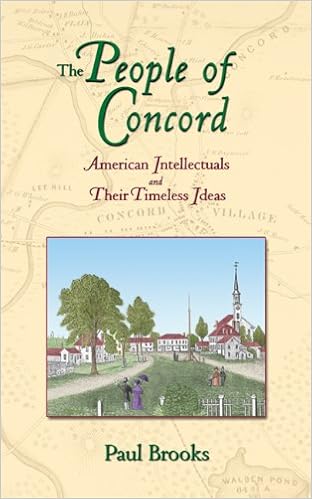Moore: How much of this book was sparked by you wanting to make better sense of your own public and sometimes fraught relationship with American evangelicalism?
Prior: Wow. You just dive right in, don’t you?
I explain in the introduction how this book emerged in large part through watching my students–I’ve been teaching evangelical students for 25 years–wrestle with their own fraught relationships with American evangelicalism.
But you have rightly intuited that it hasn’t been just my students that have had to contend with what we’ve all witnessed over the past several years within American evangelicalism. I have been formed and discipled by conservative evangelicalism for nearly 40 years. I was (am?) a culture warring evangelical. But, like so many, I’ve seen what that has gotten us. And I’ve seen what we’ve lost, too. So as much as I still very much identify as evangelical and want to recover whatever in it that is good, I also lament what we have gotten wrong.
I know some (too many of my students, to be honest) have given up–not only on evangelicalism, but on the faith, too. No movement is perfect, of course. But I don’t see how any faithful person would not want to engage in an ongoing process of discernment, correction, and repair. Yet, in doing that–and in doing it very publicly–I have been attacked, misrepresented, and had my very faith called into question. (Others have had the same experiences.)
So, fraught? Absolutely.
Moore: In my thirties, I was an associate pastor (more on that modifier in the next question) in a large, evangelical church. Some of the elders had a penchant for calling families “giving units.” In your book you write about the use of “Enlightenment-era machine metaphors.” Would you describe what you mean by that description?
Prior: I’ve got to be honest: “giving units” is a new one for me. I wish I’d heard of it to include in the book!
There are so many of these machine metaphors. They are so common we often forget they are such. When we talk about calculating our productivity, processing our thoughts, the light bulb going on, firing on all cylinders, or being fully functioning, we are using machine metaphors.
Now, there’s not anything inherently wrong with using these metaphors. But if we lose sight of what we are comparing ourselves to, then we risk losing a bit of the full sense of our humanity.
Moore: Modifiers like youth, assistant, associate, music, discipleship executive, lead, senior, are more still (!), are common to use before pastor. Specialization in this sort of way is a recent thing. I think it would be hard to find much of it prior to the nineteenth century. How has specialization affected our imaginations as to the responsibilities of every pastor?
Prior: Late modernity is most definitely an age of specialization. Again, that is mostly a blessing. How good it is to have some physicians who can treat cancer so well and others who are skilled in brain surgery! What we can lose in overspecialization, however, is the essence of the calling: a physician is called to care and to heal. A teacher is called to teach no matter what the subject or who the students. And a pastor is called to shepherd his flock. When we lose sight of the telos (of anything), we lose sight of the thing itself.
I think this is partly why the Southern Baptist Convention (for example) is in the midst of so many controversies over titles, and names, and terms. The same is true with controversial social issues: so much of the battle over labels is over the nature of things. Yet, we also live in a culture that increasingly denies the nature of things. A shepherd and a leader are quite different things, for example. Yet many think they are somehow supposed to be the same. I can’t help but wonder if the shortage of pastors that has been much reported recently is related to what the role is imagined to be like compared to what it really is.
Moore: I regularly develop mnemonic devices and I also like to come up with sayings that remind me of critical truths. Over the decades, I have listened to hundreds of Christians giving their “testimonies.” During my time on staff with Cru, I sometimes helped others put together their testimony. The only kind of testimony I have ever heard (and now you know I was guilty for aiding and abetting things!) is one of achieving some sort of spiritual victory. I now call this “Watch out who has the microphone.” What fuels the American evangelical love for only “overcomer” kinds of testimonies? Why don’t we ever hear “testimonies” where someone describes that they are presently struggling, but still trusting God?
Prior: Ok, here’s my chance. I want to say that I am presently struggling–but still trusting God!
But back to your very good question.
I think there are a few things at play here. First, it is simply human to love a great story, the more dramatic, the better. And it is particularly modern (although not exclusively so) to especially love the underdog who overcomes great obstacles or experiences a great transformation. And even further, it is especially American to desire or applaud the individual achievement of some kind of greatness.
When these cultural factors are added to the biblical reality of conversion, then you have a perfect set of conditions for cultivating an appetite for extra spicy testimonies.
Moore: Offering non-Christians the opportunity to have a “personal relationship” with Christ is a regular feature of evangelical evangelism. This approach to evangelism is rather recent, isn’t it? If so, why is it, and what would be a better way to communicate (I was tempted to say “share”) the gospel?
Prior: Again, this is a particular feature of the modern age. Modernity is characterized by the rise of the individual. Evangelicalism’s emphasis on the individual experience of salvation and the conversion experience makes it harder for us to put this reality in balance with the passages in the Bible that describe families, households, and generations as being part of a covenantal faith. As an evangelical, I do see the need for individual acceptance of Christ or following him. But I am coming to see more and more the role that families, churches, communities, and cultures play in preparing the ground for individuals to believe.
Moore: I believe it is safe to say that the evangelical model of Christian growth is largely behavioristic. It seems that the Victorian Era, of which you write so well on, could be an influence with our focus on external behavior rather than addressing our inner motivations, or what Augustine called “properly ordered loves.”
Prior: Absolutely. The Victorians were very concerned with “keeping up appearances.” (Really, this is true of all human societies, of course, but the Victorians were just extra good at it and lived in a context, one largely shaped by evangelicalism and the industrial revolution, that facilitated it.)
Then came behaviorism as an approach to human understanding in the early twentieth century. There is some truth in this school of thought, but as you point out, Augustine has a lot to offer us in understanding the relationship about how our inner desires are cultivated–and that they are cultivated–often by externals such as the social imaginary. If we fail to integrate the inward and the outward, one will always lead at the expense or deformity of the other.
Moore: What are a few things that you hope your readers take away from reading The Evangelical Imagination?
Prior: I hope that readers have a greater awareness of the powers of the imagination, our social imaginaries, and language–even on our deeply held beliefs. Even more, I hope they see how it is Christ who holds all these things together. He is at the center, and our desire should be to be centered in him.


